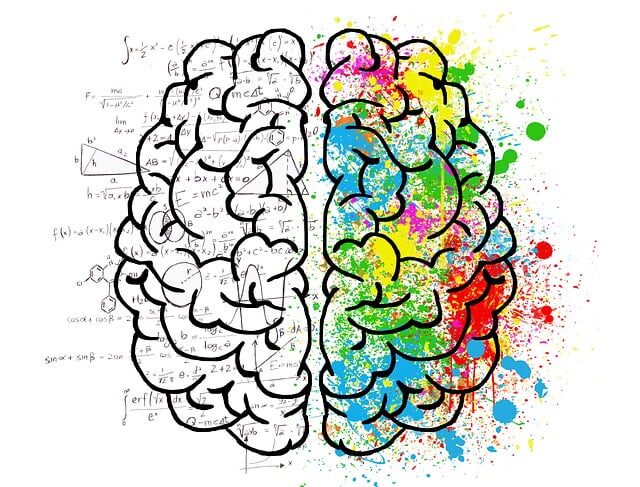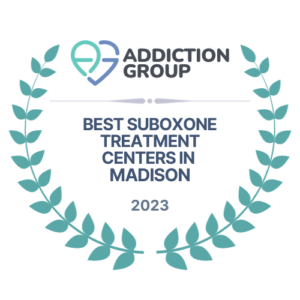The opioid epidemic has ravaged communities across the United States, causing widespread destruction and taking countless lives. With the increasing number of overdoses and deaths caused by opioid addiction, it is crucial to find effective treatment options that can help individuals recover from their addiction and regain control over their lives.
One of the most commonly used treatment options is Suboxone, a medication-assisted treatment (MAT) that combines the use of medication with counseling and therapy. However, many people are skeptical about the effectiveness of Suboxone treatment and question the importance of counseling and therapy in the recovery process.
In this article, we will explore the role of counseling and therapy in Suboxone treatment for opioid addiction and explain why it is such a critical component of recovery.


The Science Behind Opioid Addiction and Treatment
Understanding the brain and how opioids affect it
The human brain is a complex and delicate system that is responsible for regulating various aspects of behavior and thoughts, including emotions, sensations, and actions. When a person becomes addicted to opioids, it can cause significant changes to occur in the brain, leading to a range of harmful consequences including making individuals more impulsive and compulsive
Opioids are a class of drugs that include prescription painkillers, such as oxycodone and hydrocodone, as well as street drugs like heroin and fentanyl. These drugs are highly addictive due to the way they interact with the brain’s natural reward system. When consumed, opioids bind to the brain’s opioid receptors, which trigger the release of dopamine, a chemical associated with feelings of pleasure and reward. Over time, this constant stimulation of the reward system can cause the brain to become dependent on opioids, leading to addiction.
This dependency can lead to a range of physical and emotional symptoms, including increased tolerance, withdrawal, and cravings. The severity of these symptoms depends on the amount and frequency of opioid use, as well as individual differences in brain chemistry and anatomy.
In order to effectively treat opioid addiction, it’s important to understand how the brain is affected by these drugs, as well as how the right combination of counseling and therapy can help to restore balance to the brain and support lasting recovery.
How Suboxone works to combat opioid addiction
Suboxone treatment is also known as medication-assisted treatment (MAT) for opioid addiction. Suboxone’s active ingredient is buprenorphine. Buprenorphine is a partial opioid agonist, meaning it binds to the same receptors in the brain as opioids, but with a lower potency. This helps to reduce cravings and withdrawal symptoms associated with opioid addiction. Suboxone has an inactive ingredient known as naloxone. Naloxone is added to the treatment to discourage abuse as it only becomes active if Suboxone is injected and it would cause the individual not to become high in that situation.
When used as part of a comprehensive treatment plan, Suboxone can play a crucial role in helping individuals recover from opioid addiction. The medication helps to stabilize the brain and reduce cravings, allowing individuals to focus on the other aspects of their recovery, such as therapy and counseling. Suboxone treatment is typically administered by a healthcare provider, who will work with the patient to develop a personalized treatment plan that takes into account their unique needs and challenges.
Suboxone treatment is often prescribed as part of a long-term treatment plan, and patients are typically encouraged to continue taking the medication for several months or even years, as needed. This helps to ensure that the individual remains stable and that the risk of relapse is reduced. However, as with any medication, Suboxone should be used under the close supervision of a healthcare provider, and patients should be regularly monitored for any potential side effects or interactions.
The role of counseling and therapy in the treatment of opioid addiction
The role of counseling and therapy in the treatment of opioid addiction is critical. Research has shown that combining medication-assisted treatment (MAT) with behavioral therapy has the highest success rate in helping individuals overcome opioid addiction. Behavioral therapies, such as counseling and therapy, address the psychological and social aspects of addiction and provide individuals with the tools and skills they need to maintain long-term sobriety.
Counseling and therapy sessions provide a supportive and safe environment for individuals to discuss their feelings, thoughts, and experiences related to their addiction. These sessions allow individuals to explore the root causes of their addiction, including any underlying emotional or mental health issues, and develop strategies to address them.
Furthermore, counseling and therapy sessions can help individuals learn how to manage triggers, such as stress or social situations, that can lead to relapse. They can also provide individuals with coping skills to deal with cravings and emotional distress. By working with a therapist or counselor, individuals can develop a deeper understanding of their addiction and learn to recognize and address behaviors and thought patterns that may contribute to their addiction.
In addition to individual therapy, group therapy can also be an effective tool in the treatment of opioid addiction. Group therapy sessions provide individuals with the opportunity to connect with others who are facing similar challenges, allowing them to share their experiences and offer support to one another. Group therapy can also help individuals feel less isolated and less stigmatized, which can be particularly helpful for those struggling with addiction.
Counseling and therapy play a crucial role in the treatment of opioid addiction and should be considered an integral part of any comprehensive treatment plan. By addressing the psychological and social aspects of addiction, individuals can develop the skills and strategies needed to maintain long-term sobriety and overcome their addiction for good.
The Benefits of Integrating Counseling and Therapy into Suboxone Treatment
Addresses the root cause of addiction
Incorporating counseling and therapy into Suboxone treatment allows individuals to address the root cause of their opioid addiction. This holistic approach to treatment recognizes that addiction is not just a physical dependence on drugs, but also a psychological and emotional issue. By delving into the underlying psychological and emotional factors that drive addiction, individuals can gain a deeper understanding of their own unique needs and challenges, and work to develop a comprehensive plan for recovery.
For example, individuals may discover that their opioid use stems from a traumatic event, such as physical or emotional abuse, or from an underlying mental health condition, such as depression or anxiety. Understanding these underlying causes of addiction can help individuals to develop more effective coping strategies and find healthier ways of managing their emotions and stress. This, in turn, can help to prevent relapse and support long-term recovery.
Counseling and therapy can also provide individuals with the tools and support they need to overcome the challenges and temptations of recovery. For example, therapy can help individuals to identify triggers that may cause them to crave opioids and develop strategies for avoiding or managing these triggers. Additionally, therapy can provide individuals with the support they need to work through difficult emotions, develop self-awareness and self-compassion, and gain a sense of purpose and fulfillment in life.
Improves mental health and overall well-being
Addressing addiction is about much more than just detoxing the body from harmful substances. It’s a complex process that involves treating the underlying psychological, emotional, and social factors that led to substance abuse in the first place. Integrating counseling and therapy into Suboxone treatment helps to improve mental health and overall well-being by addressing these underlying issues.
Through counseling and therapy sessions, patients have the opportunity to explore their thoughts, feelings, and behaviors, and work with a mental health professional to identify the root cause of their addiction. This helps to create a greater understanding of why they became addicted to opioids in the first place, and how they can avoid relapsing in the future.
Patients can work with a counselor or therapist to develop coping mechanisms for managing stress, depression, and anxiety, which are common issues that people in recovery from addiction may experience. By improving mental health and overall well-being, patients are more likely to stick to their treatment plan, reducing the risk of relapse and increasing the chances of sustained recovery.
Increases the chances of long-term success in recovery
One of the biggest benefits of integrating counseling and therapy into Suboxone treatment is that it significantly increases the chances of long-term success in recovery. Addiction is a complex and multifaceted issue that affects not just the physical body but also the mind, emotions, and behavior. Simply treating the physical symptoms of addiction with medication is not enough to ensure long-term success in recovery.
Counseling and therapy provide patients with the tools and skills necessary to deal with the psychological and emotional aspects of addiction. This includes addressing the root causes of addiction, such as underlying mental health issues, and teaching patients healthy coping mechanisms to deal with stress and triggers. By treating both the physical and psychological aspects of addiction, patients are better equipped to maintain their sobriety over the long-term.
Counseling and therapy provide a supportive and non-judgmental environment where patients can share their thoughts and feelings, work through challenges and setbacks, and receive encouragement and guidance. This sense of community and support is crucial in helping patients sustain their recovery over time.
Integrating counseling and therapy into Suboxone treatment offers a comprehensive and holistic approach to treating opioid addiction, and it has been shown to increase the chances of long-term success in recovery.
Reduces the risk of relapse
Relapse is a common challenge for individuals undergoing Suboxone treatment for opioid addiction. This is because addiction is a complex condition that affects multiple aspects of a person’s life, including their mental and emotional health. That is why integrating counseling and therapy into Suboxone treatment is so crucial.
Counseling and therapy help individuals understand the root causes of their addiction, develop healthy coping mechanisms, and identify triggers that may lead to relapse. These sessions also provide a safe and supportive environment where individuals can discuss their challenges, fears, and progress in their recovery journey.
Working with a therapist can help individuals address underlying mental health issues that may contribute to their opioid addiction. For example, those with depression, anxiety, or trauma may use opioids to self-medicate, but therapy can help them find healthier ways to manage these conditions.
By providing individuals with the tools and support they need to manage their addiction and improve their mental health, counseling and therapy can reduce the risk of relapse and increase the chances of long-term success in recovery.
Incorporating counseling and therapy into Suboxone treatment for opioid addiction is essential for addressing the root causes of addiction, improving mental health, and reducing the risk of relapse. The benefits of integrating these two approaches are clear, and individuals who receive both Suboxone treatment and counseling and therapy have a greater chance of overcoming their addiction and achieving long-term recovery.
The Different Types of Counseling and Therapy Available for Suboxone Patients
The key is to find a type of therapy that works best for each individual, and to engage in therapy regularly as part of a comprehensive recovery plan. These are a few examples of the many types of counseling and therapy available to Suboxone patients:
Individual therapy
Individual therapy is a one-on-one session between the patient and a therapist. It provides a safe and confidential space for patients to discuss their thoughts, feelings, and behaviors related to their addiction. This type of therapy can help patients understand their triggers and develop coping mechanisms to avoid relapse.
Group therapy
Group therapy is a form of counseling where a small group of people with similar experiences come together to support one another. In the context of Suboxone treatment, group therapy can provide patients with a sense of community and encouragement as they navigate their recovery. Group therapy can also help patients develop new social skills and relationships, which can be a crucial component of a successful recovery.
Family therapy
Family therapy involves the patient and their loved ones working together with a therapist to address the impact of addiction on their relationships. This type of therapy can help families understand and support each other through the recovery process, and work to repair any damage that has been done.
Cognitive Behavioral Therapy (CBT)
CBT is a form of therapy that focuses on changing negative patterns of thought and behavior. CBT can help Suboxone patients identify and challenge any negative beliefs and behaviors that may be contributing to their addiction, and develop healthier coping mechanisms in their place.
Motivational Interviewing (MI)
MI is a type of therapy that is designed to increase a person’s motivation to change their behavior. This type of therapy can be especially helpful for Suboxone patients who may be resistant to the idea of treatment or who may be struggling with the motivation to stay in recovery. MI can help patients explore their reasons for wanting to change and develop a stronger commitment to their recovery.
The Importance of Choosing the Right Counselor or Therapist
Choosing the right counselor or therapist is crucial in ensuring that the patient receives the best care possible and achieves successful recovery.
Qualifications and experience
Qualifications and experience play a key role in determining the effectiveness of the treatment. It’s essential to look for a counselor or therapist who is licensed, certified, and well-versed in treating addiction and mental health issues. A professional who has experience working with patients undergoing Suboxone treatment and understands the unique challenges faced by those in recovery can provide valuable insights and guidance.
A qualified counselor or therapist will have the necessary skills and training to effectively address the root causes of addiction and help patients overcome the challenges that led to their substance use in the first place. This can include trauma, anxiety, depression, and other mental health issues that often co-occur with addiction.
Compatibility with the patient
When it comes to counseling and therapy, the relationship between the patient and the therapist is crucial. This relationship can determine the success or failure of the treatment process, which is why it’s important to choose the right therapist who is compatible with the patient’s needs, personality, and communication style. It’s essential that the patient feels comfortable with their therapist and is able to build a strong rapport and trust with them.
The patient should look for a therapist who they feel understands their struggles and is willing to work with them to achieve their goals. A therapist who is empathetic, supportive, and non-judgmental will create a safe and supportive environment for the patient, which will help them to open up and work through their issues.
Understanding of addiction and Suboxone treatment
When choosing a counselor or therapist, it’s important to ensure that they have a good understanding of addiction and the role of Suboxone in treating it. The individual you choose should be knowledgeable about the brain chemistry involved in addiction and how it can be treated with Suboxone. They should also be well-versed in the benefits and potential challenges of using Suboxone in combination with counseling and therapy.
It’s essential to find someone who is familiar with the complexities of opioid addiction and who can support you in your journey to recovery. A counselor or therapist with experience in treating addiction will have a better understanding of how to help you overcome the challenges you may face during treatment. They should be able to provide guidance and support to help you stay on track, even when you encounter difficulties.
It’s crucial to choose a counselor or therapist who has a deep understanding of addiction and the role of Suboxone in treating it. This will increase the chances of a successful outcome and help ensure that you are receiving the best possible care.
Conclusion
The combination of Suboxone and counseling/therapy is crucial in the treatment of opioid addiction. The integration of these two elements addresses the root cause of addiction and improves mental health and overall well-being. It also increases the chances of long-term success in recovery and reduces the risk of relapse. With various types of counseling and therapy available, it’s important to choose the right counselor or therapist who is qualified, compatible with the patient, and understands addiction and Suboxone treatment.
The opioid epidemic continues to be a major issue, and it’s crucial for healthcare professionals to play a role in addressing it. By offering a comprehensive approach to treatment that includes both medication-assisted treatment like Suboxone and counseling/therapy, healthcare providers can help individuals overcome their addiction and achieve lasting recovery.
For those seeking help for opioid addiction, it’s essential to consider a combination of Suboxone and counseling/therapy. With the right support and resources, individuals can overcome their addiction and begin the journey towards a brighter, healthier future.
Interested to learn more? Read more related articles: Suboxone vs Subutex: Understanding the Key Differences
Contact National Addiction Specialists For Your Suboxone Treatment
National Addiction Specialists is here to help and support you if you are struggling with opioid addiction.
You can use your phone, tablet, or computer to chat and speak with a doctor in the comfort of your own home. You’ll receive your individualized treatment plan and continue to receive telemedicine care up until you reach full recovery.
Get in touch with us to start taking steps to beat your opioid addiction.
References:
https://www.sciencedaily.com/releases/2022/03/220324184711.htm
https://www.ncbi.nlm.nih.gov/pmc/articles/PMC2274830/
https://www.sciencedirect.com/science/article/abs/pii/S0740547222000563
https://www.nejm.org/doi/full/10.1056/nejmoa055255













